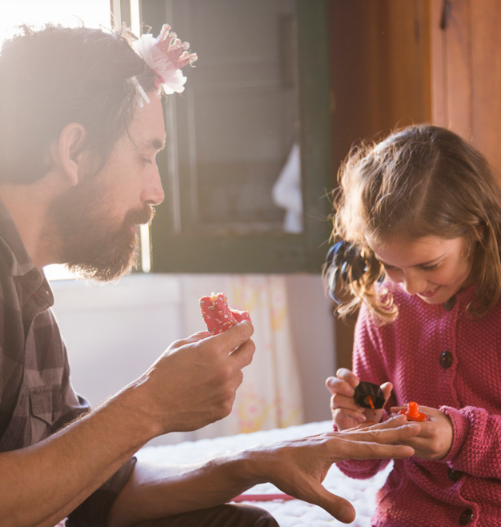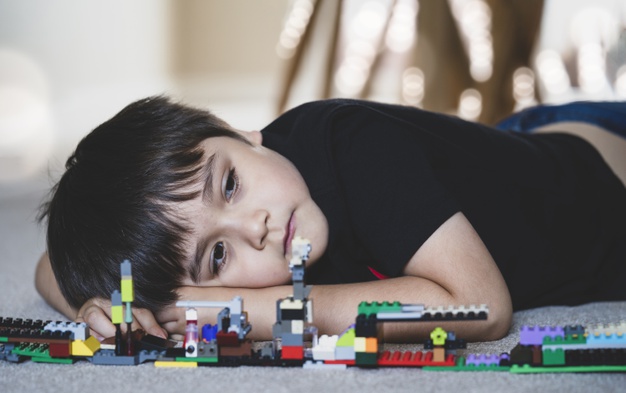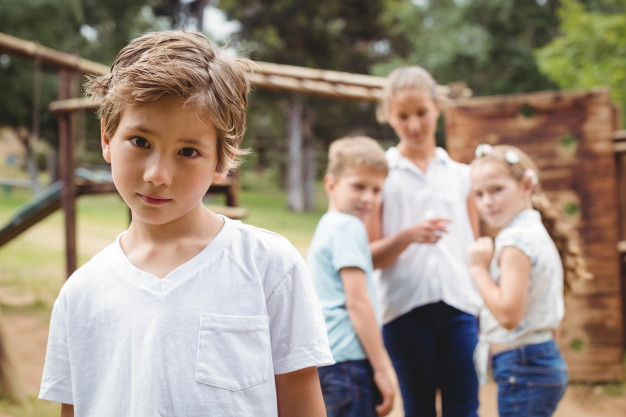Child emotional development is a key process that takes place differently for all children. The emotional development that starts as a child can affect you into your adolescence and adulthood, which is why it’s important to understand the factors that make up child emotional development. This article provides a brief overview of early childhood development and is intended to give you some of the basics and to help you understand the importance of play and how critical it is to a child’s growth and development.
What We'll Cover
Outside of this article, to continue to learn about child emotional development, you should take classes, attend workshops and trainings, and never stop educating yourself on this important topic. This topic is closely related to science and psychology, which means that there will always be news studies and research that changes the way we approach child emotional development. Because of this, it’s important to stay up-to-date on the latest findings, especially if this is your career.
Why Learn About Child Emotional Development?
If you are a family child care provider, or plan to be one, you love children. Love of children, patience, communication skills and empathy are all certainly elements of quality child care, but it is not enough. Research on the relationship between provider qualifications and child outcomes clearly indicates that providers must also have knowledge of child development, learning, and best practices, as well as the support and technical assistance needed to implement developmentally appropriate practices in their classrooms and programs.
If you have not already begun taking classes, I encourage you to enroll in child development classes at your local community college. Even those of us who really thought we knew children are amazed at how much there is to learn, how it improved the quality of care we provided, and as an added bonus, how much easier it makes our work with children.

Social and Emotional Child Development Begins With Attachment
An infant develops trust when he or she experiences his or her needs being met in a consistent, nurturing relationship with a primary caregiver. In a secure relationship, an infant can form attachments. Studies of children who were not able to form secure attachments found that some children withdrew, became apathetic or depressed, or in some cases, just gave up and didn’t survive. Others, however, were quite the opposite. Instead of withdrawing, they acted out, seeking sensations in aggressive and sometimes harmful ways.
Most children, even if they have developed healthy attachments, experience separation anxiety, or fear of being separated from their primary caregiver or attachment person, and stranger anxiety. We can help children cope by responding sensitively, maintaining a predictable schedule, ritualizing the parent’s departure, offering transitional items, and allowing the child time
to become familiar with new people.
There are certain essential skills, or mastery, a young child needs to achieve. These essential skills include:
- Social attachment and the ability to cope with stress
- Regulation and control of emotions
- Vision and auditory acuity
- Motor development and coordination
- Vocabulary and language development
- Cognitive development
These experiences happen during the formation of a secure attachment to a nurturing and supportive caregiver. Attachment can soften the effects of stress and trauma later on. A secure attachment also fosters learning, memory, expression and control of emotions and the development of interactive and social behaviors.

Tips on Helping Children Develop Emotionally
All children are different, however, we can use studies and research to come up with successful tips to help children with their emotional development. You will also want to find tips for your children’s age group, as a 9-year-old child will already be at a different stage of emotional development as a 6-year-old child. For instance, toddlers strive to be autonomous. By planning ahead so the toddler has time to practice skills without being rushed, we are helping him or her to master skills, which promotes independence and fosters self esteem. Self soothing behaviors help toddlers cope with emotions and to eventually self-regulate their emotions. Once they don’t need to anymore, most children will cease their self-soothing behaviors. Although, it is possible that they may reappear at times of high stress later in life.
Punishing Children Can Affect their Emotional Development
Young children should be allowed to sooth themselves with behaviors that work best for the individual child. For some, that may be thumb sucking, rocking back and forth, and for others, twirling their hair. It is important that we don’t interfere with these behaviors or punish or ridicule the child. When a child is experiencing overwhelming stress, he or she is not able to store information. Because of this, cognitive learning is not likely to occur because of downshifting. Downshifting is the brain’s response to high levels of stress that prevents the brain from functioning at higher levels where creative thinking and problem solving occur. Instead, the brain goes back down into “fight or flight,” or reactionary mode.
If a child has not had experiences that allowed him to form attachments and self regulate emotions or impulsivity, we cannot expect them to do so in the classroom. Punishing or humiliating children who are unable to sit still or who exhibit challenging behaviors in the classroom only strengthens those behaviors. But, we can help children to self regulate by providing effective skill building activities and nurturing interactions. In “Fear Changes the Way We Think,” Dr. Bruce Perry emphasizes the importance of exposing children who have experienced trauma or neglect to predictable, nurturing relationships and developmentally appropriate experiences. He says that in doing so, it is possible to reverse some of the negative effects of stress.
Final Thoughts on Child Emotional Development
Learning about child emotional development, whether you are a parent or primary care giver, is just as important for adults as it is for children. The way children develop emotionally can have a lasting impact on them, and it may even affect their behavior later on in life as adults. In this article, we discussed the basic of child emotional development, and how you can monitor your children to see how they are developing.
The responses below are not provided, commissioned, reviewed, approved, or otherwise endorsed by any financial entity or advertiser. It is not the advertiser’s responsibility to ensure all posts and/or questions are answered.


![Best Ways To Keep Your Baby's Hands Warm At Night [Research-based]](/assets/images/a9b0f15e6feec7325d126bac42e75e07.png)


